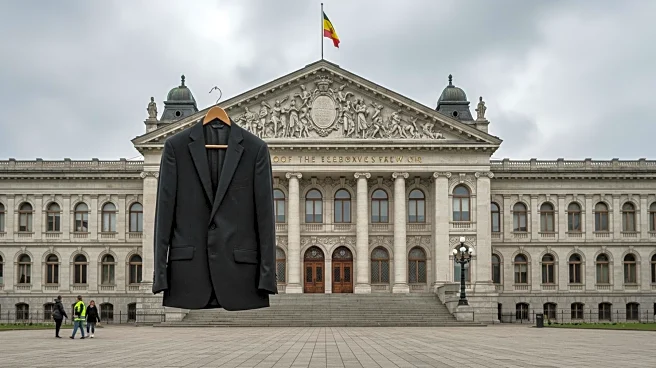What is the story about?
What's Happening?
In Buenos Aires, pensioners have been protesting against President Javier Milei's economic policies, demanding increased pensions to cope with rising prices. The protests have become a weekly occurrence, with pensioners facing police action including tear gas and rubber bullets. Milei, known for his ultraliberal economic stance, has vetoed pension increases proposed by Congress, citing fiscal responsibility. The protests highlight the economic struggles faced by Argentina's elderly population, many of whom receive pensions insufficient to cover basic living costs.
Why It's Important?
The protests by pensioners reflect broader discontent with Milei's economic policies, which prioritize fiscal austerity over social welfare. This situation highlights the tension between economic reform and social equity, as vulnerable populations bear the brunt of budget cuts. The protests could influence public opinion and political dynamics in Argentina, potentially affecting Milei's approval ratings and policy decisions. The government's handling of the protests also raises concerns about human rights and the treatment of elderly citizens.
Beyond the Headlines
The harsh security response to pensioner protests may desensitize the public to political violence, raising ethical concerns about the government's approach to dissent. The situation also reflects long-standing issues in Argentina's political culture, where activism and protest are deeply rooted. The pensioners' struggle underscores the need for a balanced approach to economic reform that considers the welfare of all citizens.















